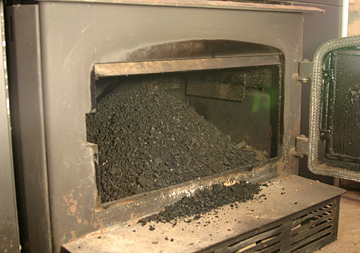Why Does My Fireplace Have a Bad Smell?
 Your fireplace has provided years of worry-free warmth and enjoyment for you and your family. But if you don’t use the fireplace very often or have foregone the customary annual inspection and cleaning, you may begin to notice a peculiar smell in the room. It seems to get stronger as you get closer to the fireplace until it hits you like a ton of bricks when you have a peek inside.
Your fireplace has provided years of worry-free warmth and enjoyment for you and your family. But if you don’t use the fireplace very often or have foregone the customary annual inspection and cleaning, you may begin to notice a peculiar smell in the room. It seems to get stronger as you get closer to the fireplace until it hits you like a ton of bricks when you have a peek inside.
While odors are common, a strong foul odor emanating from the fireplace shouldn’t be dismissed. Think of it as a crude safety alert indicating that something is amiss. While there are a number of explanations for bad fireplace smells, the best way to get rid of it is with a thorough chimney inspection and cleaning by a certified chimney sweep.
Mold
Fireplaces that are inadequately ventilated and are used and cleaned infrequently can create the perfect conditions for black mold to grow inside the chimney giving off noxious fumes that smells like ammonia. This may also be a sign of a chimney leak or deteriorating brick masonry. Because mold can cause respiratory problems and other serious health issues it should be professionally removed as soon as possible. During a chimney inspection, we will check for a possible water leak and repair any damaged areas.
Dead Animals
Small birds, animals and rodents often find chimneys a cozy and hospitable habitat providing shelter from the weather and prey. They will feed and do their business in there too. Unfortunately, they are not always able to escape and sometimes perish in the chimney. Depending upon the weather and length of time between chimney cleanings it can get very smelly in there. A chimney cap will help keep most of these critters out. But some pesky ones could damage the mesh lining and break in. So be sure to keep up with annual chimney inspections.
Falling Leaves
A missing or damaged chimney cap can allow leaves and other organic material blowing in the wind to accumulate in the chimney and fireplace box when the damper is left open or doesn’t close properly. With the help of oxygen the rotting material decomposes causing an unpleasant smell in the fireplace. It’s a good practice to periodically test the damper to ensure it is operating correctly. Also, keeping it closed when the fireplace is not in use will help keep out water and other unwanted debris.
Creosote and Soot
 Whenever you use the fireplace creosote and soot form inside the chimney and flue. It’s a normal part of the burning of fossil fuels like wood and oil. But when water is allowed to seep inside a poorly ventilated chimney it interacts with the carbon material that is caked along the walls often causing a foul odor that can radiate through an entire room.
Whenever you use the fireplace creosote and soot form inside the chimney and flue. It’s a normal part of the burning of fossil fuels like wood and oil. But when water is allowed to seep inside a poorly ventilated chimney it interacts with the carbon material that is caked along the walls often causing a foul odor that can radiate through an entire room.
Foul odors from the fireplace are unpleasant and do occur from time to time. Maintaining annual chimney inspections and cleanings even when your fireplace is not frequently used will help prevent many unpleasant smells. If you are noticing a foul odor in the fireplace, contact us to schedule a chimney inspection so we can identify the source and remedy the problem.
Guardian Chimney Sweep
Houston, Texas / Conroe, Texas
Houston: (713) 401-2011
Conroe: (936) 271-9781

 Tap to Call Now
Tap to Call Now